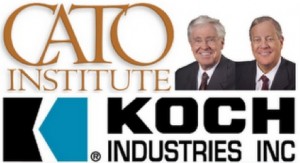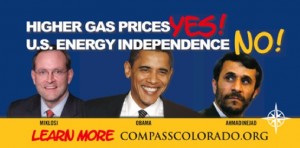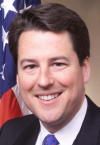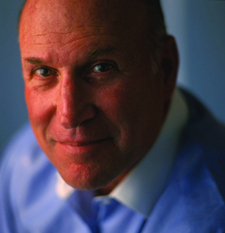 A pitched battle is on over California’s Proposition 29, a measure on the statewide ballot to raise the cigarette tax by one dollar to fund smoking cessation and research on tobacco-related diseases. If enacted, the measure would increase California’s per-pack cigarette tax to $1.87 per pack. According to Maplight, the biggest donors favoring the tax are the American Cancer Society ($7.42 million), the Lance Armstrong Foundation ($1.5 million), the American Heart Association ($546,256), the American Lung Association ($412,086) and Michael R. Bloomberg ($500,000). Laurene Powell Jobs, the widow of Steve Jobs, kicked in $25,000 to support Prop. 29. But those amounts pale in comparison to the tidal wave of money tobacco companies and their allies are pouring into defeating the measure. Philip Morris (Altria) alone has given just over $24 million, Reynolds American, Inc. has put in $9.57 million, and U.S. Smokeless (also owned by Altria) has put in $1.5 million. The California Republican Party contributed $1.14 million to defeat the tax. As usual, tobacco companies are trying to hide their role in the campaign by refusing to speak to journalists, running ads without their fingerprints on them and fighting the campaign through a front group, “Californians Against Out-of-Control Taxes and Spending,” which is aligned with right wing, pro-business groups funded by millionaires and billionaires like Americans for Prosperity, FreedomWorks, the Chamber of Commerce and the Petroleum Marketers Association. Californians Against Out-of-Control Taxes and Spending doesn’t even list tobacco companies among the “No” campaign’s endorsers on the group’s website — as if tobacco companies weren’t involved.
A pitched battle is on over California’s Proposition 29, a measure on the statewide ballot to raise the cigarette tax by one dollar to fund smoking cessation and research on tobacco-related diseases. If enacted, the measure would increase California’s per-pack cigarette tax to $1.87 per pack. According to Maplight, the biggest donors favoring the tax are the American Cancer Society ($7.42 million), the Lance Armstrong Foundation ($1.5 million), the American Heart Association ($546,256), the American Lung Association ($412,086) and Michael R. Bloomberg ($500,000). Laurene Powell Jobs, the widow of Steve Jobs, kicked in $25,000 to support Prop. 29. But those amounts pale in comparison to the tidal wave of money tobacco companies and their allies are pouring into defeating the measure. Philip Morris (Altria) alone has given just over $24 million, Reynolds American, Inc. has put in $9.57 million, and U.S. Smokeless (also owned by Altria) has put in $1.5 million. The California Republican Party contributed $1.14 million to defeat the tax. As usual, tobacco companies are trying to hide their role in the campaign by refusing to speak to journalists, running ads without their fingerprints on them and fighting the campaign through a front group, “Californians Against Out-of-Control Taxes and Spending,” which is aligned with right wing, pro-business groups funded by millionaires and billionaires like Americans for Prosperity, FreedomWorks, the Chamber of Commerce and the Petroleum Marketers Association. Californians Against Out-of-Control Taxes and Spending doesn’t even list tobacco companies among the “No” campaign’s endorsers on the group’s website — as if tobacco companies weren’t involved.
Category: Front groups
Advertising, Energy, Ethics, Front groups, Media, politics, Secrecy
Compass Colorado Links Obama and U.S. Energy Policy to Iranian Dictator
by • • 0 Comments
The Republican front group Compass Colorado is running billboards across the state that link President Obama with Iranian President Mahmoud Ahmadinejad. The boards show a photo of President Obama alongside photos of Ahmadinejad and, varyingly, three lesser-known Colorado Democratic Congressional candidates: Representatives Joe Mikloski, Sal Pace and Congressman Ed Perlmutter. Above the photos, text says “Higher gas prices YES! U.S. Energy Independence NO!” The boards fail to mention that the U.S. does not buy any oil from Iran. By using their photos and names next to that of President Obama, Compass Colorado is unwittingly giving the three lesser-known candidates a free boost to their name recognition. Compass Colorado is run by Tyler Q. Houlton, who worked as communications director for former Colorado Rep. Tom Tancredo. Tancredo gained fame for his February 4, 2010 speech at the National Tea Party Movement Convention in which he said Barack Obama became president because of “people who could not even spell the word ’vote’ or say it in English.” Tancredo then proposed making people take “a civics literacy test” as a prerequisite to voting. Houlton also worked for Rep. Scott McInnis’ failed campaign for governor of Colorado. McInnis’ campaign tanked after journalists revealed McInnis had plagiarized an extensive essay about water law that a nonprofit group had paid him to write. McInnis blamed the plagiarism on an elderly research assistant and refunded the $300,000 to the organization that paid him. Compass Colorado does not reveal its funders.
Main source: Colorado Pols, May 12, 2012
Advertising, Children, Corporations, Energy, Environment, Ethics, Front groups, Media, politics, Tobacco
Memo Exposes Huge PR Campaign to Attack Wind and Solar Industries
by • • 0 Comments
 A group of energy industry-affiliated, right-wing groups is readying a massive PR plan to try and turn American public opinion against the renewable energy industries. The UK Guardian obtained a confidential draft memo written by Illinois anti-wind power attorney Rich Porter that outlines a massive PR campaign to change public opinion towards wind and solar power among “citizens at large.” The goals of the campaign, according to Porter’s memo, are to “A) Cause the targeted audience to change its opinion and action” based on anti-wind messaging, “B) Provide credible counter message to the (wind) industry, C) Disrupt [wind] industry message with countermeasures, D) Cause subversion in message of [wind] industry so that it effectively becomes so bad no one wants to admit in public they are for it (much like wind has done to coal, by turning green to black and clean to dirty.) Ultimate Goal: Change policy direction based on message.” The memo suggests teaming up with established groups like Americans for Prosperity, the American Legislative Exchange Council, the Heartland Institute, the Brookings Institute, the Cato Institute and other climate change deniers. It also suggests developing derogatory names for wind energy, like calling it “puff power” and “breeze energy.”
A group of energy industry-affiliated, right-wing groups is readying a massive PR plan to try and turn American public opinion against the renewable energy industries. The UK Guardian obtained a confidential draft memo written by Illinois anti-wind power attorney Rich Porter that outlines a massive PR campaign to change public opinion towards wind and solar power among “citizens at large.” The goals of the campaign, according to Porter’s memo, are to “A) Cause the targeted audience to change its opinion and action” based on anti-wind messaging, “B) Provide credible counter message to the (wind) industry, C) Disrupt [wind] industry message with countermeasures, D) Cause subversion in message of [wind] industry so that it effectively becomes so bad no one wants to admit in public they are for it (much like wind has done to coal, by turning green to black and clean to dirty.) Ultimate Goal: Change policy direction based on message.” The memo suggests teaming up with established groups like Americans for Prosperity, the American Legislative Exchange Council, the Heartland Institute, the Brookings Institute, the Cato Institute and other climate change deniers. It also suggests developing derogatory names for wind energy, like calling it “puff power” and “breeze energy.”
Advertising, Corporations, Energy, Environment, Ethics, Front groups, Media
Heartland Institute Likens People Who Believe in Climate Change to Mass Murderers
by • • 0 Comments
The Heartland Institute put up an inflammatory billboard along a major highway Illinois that compared belief in global warming to mass murder, but public reaction to the board — and even that of Heartland supporters — was so angry that Heartland pulled it down within 24 hours. Heartland posted the billboard along Interstate 290 in Illinois, which runs through Chicago. It featured a mug shot of Ted Kazinski, the “Unabomber,” alongside text that said, “I still believe in Global Warming. Do you? www.heartland.org” Despite the strong negative reaction to the ad, Heartland says it plans more similar billboards featuring Charles Manson, Fidel Castro and Osama bin Laden. The Heartland Institute is a climate change-denying think tank that accepts funding from big energy interests like Exxon Mobil and foundations related to Koch Industries. Heartland also belongs to the American Legislative Exchange Council (ALEC). Heartland says the board was meant to promote its upcoming climate denial conference slated to begin May 21 in Chicago. In a media advisory about its ads, Heartland says the billboard was intentionally provocative and was an “experiment” intended to grab attention.
Main source: The Raw Story, May 4, 2012
Corporations, Corruption, Ethics, Front groups, politics, Tobacco
ALEC: Big Tobacco’s “Third-Party” Ally
by • • 0 Comments
Tobacco industry documents reveal that the American Legislative Exchange Council (ALEC) has abetted the failure of state legislatures to take meaningful steps to rein in the devastation caused by tobacco use. In a previously-secret, 1993 internal Philip Morris (PM) presentation called Grasstops Government Relations, Tina A. Walls, then Vice President of State Government affairs at PM, describes the company’s strategies to influence legislators, and demonstrates how ALEC works with corporations to bolster that influence. As she shows Philip Morris employees a chart she calls “The Influence Wheel,” Walls describes how PM’s Government Affairs department analyzes every part of a legislator’s world and misses no opportunity to exert influence. Walls tells the audience how PM provides legislators with trips to “promotional and cultural events” in nice places, and as an example cites a trip ALEC facilitated in which a group of American legislators traveled to Brussels, Belgium. Walls wrote,
“We make sure legislators are aware of, and invited to, promotional and cultural events funded by Philip Morris. {CITE ALEC 1992 TRIP TO BRUSSELS AS AN EXAMPLE}”
Walls also discusses PM’s strategy to keep itself out of the media by using third parties to “carry its baggage,” and describes how PM uses third parties allies like ALEC to dodge issues:
“…we try to keep Philip Morris out of the media on issues like taxation, smoking bans and marketing restrictions. Instead, we try to provide the media with statements in support of our positions from third party sources, which carry more credibility than our company and have no apparent vested interest…”
Advertising, Economics, Ethics, Front groups, Health, Lobbying, Media, politics, Tobacco
Female, African-American Doctor Backs Tobacco Industry in New Ad
by • • 0 Comments
The tobacco industry’s front group, “Californians Against Out-of-Control Taxes and Spending,” is spending millions to run a 30-second TV ad opposing Proposition 29, a ballot measure to increase in the state’s cigarette tax. The ad features an unlikely ally: a female, African-American doctor named LaDonna Porter, M.D. Prop. 29 would increase California’s 87-cent per pack cigarette tax by an additional $1.00 to fund cancer research, smoking reduction programs and enforcement of tobacco-related laws. In the ad, Porter, stands in an examination room wearing a white lab coat and says she’s against smoking, but she finds Proposition 29 flawed. “Not one penny” of the funds generated by the measure will go towards new funding for cancer treatment, Porter says, and she raises the specter that the money could be spent out of state. The ad is consistent with the tobacco industry’s longtime strategy of getting doctors to endorse their products and back their favored policies. Still, it has generated outrage. The African American Tobacco Control Leadership Council in Oakland, California sent a scathing open letter to Dr. Porter expressing shock and outrage that she is working for Big Tobacco. It’s not the first time Dr. Porter has worked for Big Tobacco. In 2006, as LaDonna White, she starred in a tobacco industry-backed ad opposing Proposition 86, yet another measure to increase taxes on cigarettes and chewing tobacco. Dr. Porter has also lent her credibility to the pharmaceutical industry to fight an initiative that would have put a dent in drug companies’ profits.
Corporations, Corruption, Ethics, Front groups, Grassroots advocacy, Lobbying, politics
ALEC Fingered for Lobbying
by • • 0 Comments
 A front page article in the New York Times on April 21, 2012 exposes the American Legislative Exchange Council (ALEC) as a stealth business lobbyist that pushes pro-business, anti-public interest legislation in state capitols from coast to coast. ALEC is a little-known, non-profit organization that brings state legislators together with corporations to draft model legislation favoring businesses. The group has a sophisticated system for shaping state-level legislation. Legislators pay a nominal $50 fee annually to join ALEC, but corporations pay dues ranging from $7,000 to $25,000 per year, which affords them guaranteed access to legislators at upscale events like cigar receptions, conferences and pigeon shoots. Businesses use these opportunities to promote new laws to legislators benefiting the companies’ bottom lines. ALEC claims to be bipartisan, but of 104 leadership positions in the organization, Republicans fill all but one, and the policies ALEC promotes are almost exclusively right-wing. ALEC’s role as a driving force behind the wave of “Stand Your Ground” or “Shoot First” laws sweeping the country has made the group a target of public anger.
A front page article in the New York Times on April 21, 2012 exposes the American Legislative Exchange Council (ALEC) as a stealth business lobbyist that pushes pro-business, anti-public interest legislation in state capitols from coast to coast. ALEC is a little-known, non-profit organization that brings state legislators together with corporations to draft model legislation favoring businesses. The group has a sophisticated system for shaping state-level legislation. Legislators pay a nominal $50 fee annually to join ALEC, but corporations pay dues ranging from $7,000 to $25,000 per year, which affords them guaranteed access to legislators at upscale events like cigar receptions, conferences and pigeon shoots. Businesses use these opportunities to promote new laws to legislators benefiting the companies’ bottom lines. ALEC claims to be bipartisan, but of 104 leadership positions in the organization, Republicans fill all but one, and the policies ALEC promotes are almost exclusively right-wing. ALEC’s role as a driving force behind the wave of “Stand Your Ground” or “Shoot First” laws sweeping the country has made the group a target of public anger.
Advertising, Consumer advocacy, Ethics, Front groups, Media, politics, Secrecy
Federal Court Says Groups Can’t Keep Campaign Donors Secret
by • • 0 Comments
A District Court in Washington, D.C, ruled (pdf) earlier this month that it is illegal for groups to keep secret who funds their political attack ads. At the heart of the case was a regulation promulgated by the Federal Elections Commission (FEC) in December of 2007 that required disclosure of the names and addresses funders who donate $1,000 or more to organizations for electioneering communications. But the FEC, in interpreting the law, deferred to the argument that keeping track of such donations would inordinately burden corporations. In attempting to clarify the law, the FEC created a huge loophole by promulgating a follow-up rule that allowed groups to circumvent disclosure provisions required by campaign finance laws, like the Bipartisan Campaign Reform Act, and the Supreme Court’s 2010 Citizens United ruling. The disclosure provisions in Citizens United have largely been overlooked. In Citizens United, justices wrote that “the public has an interest in knowing who is speaking about a candidate shortly before an election,” and “transparency enables the electorate to make informed decisions and give proper weight to different speakers and messages.” U.S. Rep. Chris Van Hollen, Jr. (D-Maryland) challenged FEC’s loophole in a lawsuit brought against the FEC in 2011.
Advertising, Energy, Ethics, Front groups
Pain at the Pump Funds Huge Pay Raises for Energy Executives
by • • 1 Comment
Gasbuddy.com, the website that logs gas prices across the U.S., has a big blue banner ad at the top of its pages that says “Where’s your gasoline dollar go? Click here to find out.” Clicking on the ad takes you to a page, GasPricesExplained.org, that says “Why are Gas Prices Rising?” GasPricesExplained.org points to unrest in the middle east and north Africa, declines in surplus production, weather events and exchange rates, to name a few reasons why gas prices are skyrocketing, but it doesn’t directly address the sizeable contribution speculation makes to inflated gas prices. A section titled “Where Does My Money Go?” claims that “Most of what Americans pay at the pump for gasoline is the cost of the crude oil used to make it, which is why global demand and geopolitical factors are so important.” But the site fails to mention that sky-high gas prices are also funding huge pay hikes for energy industry CEOs. Exxon Mobil’s Chief Executive, Rex Tillerson, for example, got a 21 percent raise in pay in 2011. He now makes about $35 million in total compensation. Tillerson is expected to get an additional 8 percent raise in 2012. John Watson, Chair and CEO of Chevron, saw his pay increase a whopping 51 percent, just since just 2010.
Corporations, Front groups, Health, Tobacco
Transnational Tobacco Companies Target Poor Countries
by • • 0 Comments
A new study reveals PR strategies transnational tobacco companies use behind the scenes to derail, delay and undermine public health policies in low- and middle-income countries. The authors uncovered six core strategies tobacco companies use in Thailand to interfere in tobacco control policymakin: (1) doing business with “two faces,” (2) working to influence people in high places, (3) “buying” advocates inside grassroots organizations, (4) putting up deceptive fronts, (5) using intimidation, and (6) undermining controls on tobacco advertising, promotion and sponsorship. The companies often apply several of the strategies simultaneously. Public health advocates in poorer countries have successfully counteracted these strategies by remaining vigilant to spot them, excluding tobacco companies from policymaking, restricting cigarette sales, keeping up pressure on the companies and working to assure adequate resources are dedicated to enforcing tobacco control regulations. The entire text of the article is available free in PDF form here.
Source: International Journal of Environmental Research and Public Health, March 27, 2012 (pdf)
Ethics, Front groups, politics, Secrecy
Secretive Republican Attack Group “Compass Colorado” Runs Anti-Obama Ads
by • • 0 Comments
Billboards have just gone up across Grand Junction featuring Obama’s iconic campaign logo. At first glance — and that’s about all you get when driving by — all you see is the logo and it looks like the ads are pro-Obama. But if you look a split second longer, you see they are anti-Obama. The ads show someone in a pair of jeans, pulling out their empty pockets. Large wording over the photo says, “Still hoping for change?” The bottom of the board says has the website, “compasscolorado.org.”
Compass Colorado is a new conservative 501(c)4 political attack group formed in September, 2011 and headed by career Colorado Republican operative Tyler Quill “T.Q.” Houlton, who was Communications Director for Republican former Rep. Tom Tancredo. Rep. Tancredo gained fame for a speech he gave on February 4, 2010, to National Tea Party Movement Convention in which he said that Barack Obama won the presidency because of “people who could not even spell the word ’vote’ or say it in English.” He then proposed people undergo “a civics literacy test” as a prerequisite to voting.
Houlton also worked for Scott McInnis’ failed campaign for governor of Colorado. That campaign imploded after it was revealed that McInnis had plagiarized an extensive essay about water law that a nonprofit group had paid him to write. McInnis blamed the plagiarism on an elderly research assistant and refunded the $300,000 the organization had paid him.
Not much has been heard from McInnes since.
Like other conservative attack groups, Compass Colorado doesn’t reveal its donors, so we don’t know who is really behind the ads they are running. Compass Colorado’s first target was Democratic Colorado State Senator Evie Hudak of Westminster, Colorado, a former teacher and member of the Colorado Board of Education. Last election season, Compass Colorado took out $60,000 worth of TV ads to attack Sen. Hudak over her support for Proposition 103, a ballot measure that sought to increase the state income tax to help fund K-12 education. (K-12 education is now suffering financially to such an extent in Colorado that school districts across the state are moving to 4-day school weeks.) Compass Colorado also was behind robocalls attacking Proposition 103. Houlton narrated the robocalls, which went out to approximately 100,000 Colorado voters.
The domain name “CompassColorado.org” is registered to Domains by Proxy in Scottsdale, Arizona, — an entity that exists purely for the purpose of keeping domain registrations secret. Why is Compass Colorado so secretive about their funders and domain name registration? We won’t find out, unless Tyler Houlton and his Republican funders start believing in transparency and informing voters about who is really doing the attacking.
Front groups, politics
Billionaire Koch Brothers File Lawsuit to Wrest Control of Cato Institute
by • • 1 Comment
 Charles and David Koch — the billionaire industrialist brothers who already exert out-sized influence over American politics — are suing (pdf) to gain direct control over the Cato Institute, one of the country’s leading libertarian think tanks. Cato is a non-profit organization incorporated under Kansas law, which — unusually — allows it to be owned by a board of shareholders. Until recently Cato’s board consisted of four people — founder Ed Crane, Charles Koch, David Koch, and economist William Nikasen. Each held 16 shares valued at $1 per share. When Nikasen passed away in October, 2011, his shares fell to his widow, Kathryn Washburn, who has not yet offered to sell them to the other shareholders, as required by Kansas law. The Kochs are suing Washburn and the Cato Institute to force her to sell her shares to the other shareholders, which would give the Kochs a shareholder majority, and thus definitive control over Cato. The Kochs maintain that this is not a hostile takeover, (pdf) but the chair of Cato’s board, Bob Levy, said the Kochs — who now have the power to appoint half of the board — have been placing “operatives” on the board who are pushing Cato towards supporting Republican party ideals rather than libertarian ideals. Cato’s traditional libertarian stances on issues have often differed with Republican positions, for example by supporting same-sex marriage and hands-off foreign intervention and immigration policies. These more truly libertarian (and liberal) stances led to a falling-out between the Kochs and Cato over the years. But now the Kochs see their opportunity to gain more control over Cato. According to some close to the dispute, the Kochs want to use Cato to create more “intellectual ammo” for their front group, Americans for Prosperity, to use to defeat Obama in the 2012 general election. Some close to the dispute also say that if the Kochs successfully gain control of Cato, it will ruin the Institute’s credibility and lead to its demise.
Charles and David Koch — the billionaire industrialist brothers who already exert out-sized influence over American politics — are suing (pdf) to gain direct control over the Cato Institute, one of the country’s leading libertarian think tanks. Cato is a non-profit organization incorporated under Kansas law, which — unusually — allows it to be owned by a board of shareholders. Until recently Cato’s board consisted of four people — founder Ed Crane, Charles Koch, David Koch, and economist William Nikasen. Each held 16 shares valued at $1 per share. When Nikasen passed away in October, 2011, his shares fell to his widow, Kathryn Washburn, who has not yet offered to sell them to the other shareholders, as required by Kansas law. The Kochs are suing Washburn and the Cato Institute to force her to sell her shares to the other shareholders, which would give the Kochs a shareholder majority, and thus definitive control over Cato. The Kochs maintain that this is not a hostile takeover, (pdf) but the chair of Cato’s board, Bob Levy, said the Kochs — who now have the power to appoint half of the board — have been placing “operatives” on the board who are pushing Cato towards supporting Republican party ideals rather than libertarian ideals. Cato’s traditional libertarian stances on issues have often differed with Republican positions, for example by supporting same-sex marriage and hands-off foreign intervention and immigration policies. These more truly libertarian (and liberal) stances led to a falling-out between the Kochs and Cato over the years. But now the Kochs see their opportunity to gain more control over Cato. According to some close to the dispute, the Kochs want to use Cato to create more “intellectual ammo” for their front group, Americans for Prosperity, to use to defeat Obama in the 2012 general election. Some close to the dispute also say that if the Kochs successfully gain control of Cato, it will ruin the Institute’s credibility and lead to its demise.
Main sources: The Volokh Conspiracy, March 3, 2012, and Charles Rowley’s blog, March 4, 2012
animal abuse, Consumer advocacy, Front groups
“Dr. Evil” Attacks the Humane Society — Again
by • • 0 Comments
A strange ad was broadcast during the Academy Awards that tried to stir up anger and mistrust against the Humane Society of the United States (HSUS) by claiming HSUS spends only a paltry amount of its donors’ money to support local animal shelters. What the ad didn’t say is that the national office of the Humane Society by design doesn’t operate or fund animal shelters. Its mission is to lobby for laws that reduce animal abuse, especially in big commercial animal-abuse industries like puppy mills, confinement cattle operations and chicken houses. HSUS also pushes for enforcement of existing laws that protect animals from abuse. Local Humane Societies, which do operate shelters, do their own fundraising, often without involvement from the national HSUS. The ad took advantage of peoples’ ignorance about how the Humane Society is organized nationally to attack the Humane Society.
HSUS is very effective at what it does. It successfully pushed to end tail docking of dairy cows in California, to end commercial farmers’ cruel confinement of pigs in gestation crates, and worked to end the use of chimpanzees in biomedical testing, among other significant accomplishments in recent years. The HSUS’s remarkable effectiveness is why this misleading TV ad exists. The deceptive ad was paid for by HumaneWatch.org, a website created by the Center for Consumer Freedom (CCF), a front group backed by big food companies and national restaurant chains. The man behind CCF is Rick Berman, the notorious Washington lobbyist who has made a lucrative career from creating misleading ads and websites that attack consumer safety, animal welfare and environmental protection groups. Berman has created groups to advocate for minimum wage jobs; in response to the creation of Mothers Against Drunk Driving, he formed a group called “Beverage Retailers Against Drunk Driving” (BRADD) to advocate for greater tolerance of drinking. He operates a website, FishScam.com, which tells people to ignore warnings about mercury in seafood. He operates the “Center for Union Facts,” a front group for individuals and businesses that oppose unions. Berman gets paid well by businesses whose interests he protects. In recognition of his creepy reputation, in 2007 CBS’ 60 Minutes profiled Rick Berman in segment aptly titled, “Meet Rick Berman, A.K.A. ‘Dr. Evil.'”
Few people know about “Dr. Evil” and his activities, which is why he can freely continue to engaging in them, and why we see ads like the one we saw on the Academy Awards. Big businesses love Berman because they can attack consumer interest groups while hiding behind him. This way, current and potential customers won’t see their dark side and their brands will remain untarnished. But people are starting to fight back against Berman. Citizens for Responsibility and Ethics in Washington created a website, BermanExposed.org, that outs Rick Berman, his activities and fake groups. CREW also asked the IRS to investigate Berman’s misuse of the so-called “charitable” nonprofit groups he has created.
Consumer interest groups that are really effective at what they do, like the Humane Society of the U.S., become targets of big business, just like the front-runners in elections become targets for the candidates who are running behind. Berman facilitates big industries’ dirty attack business, and he won’t stop attacking public interest groups until people work to stop him from doing it.
To read more about Rick Berman and his activities, click here.









